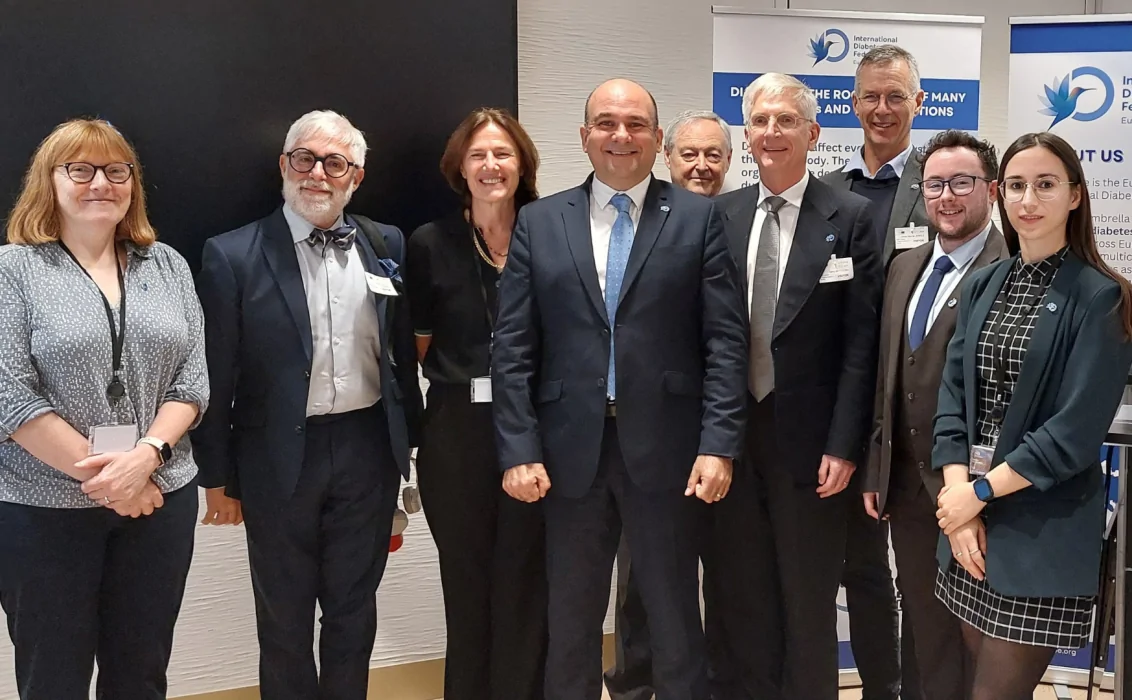The 71st session of the WHO Regional Committee for Europe (RC71) will run between 13-15 September 2021. Health ministers from 53 Member States, civil society and other relevant stakeholders will meet virtually to discuss existing health issues and set the course for future priorities. The discussions will centre around delivering the WHO European Programme of Work 2020 – 2025 (EPW) – “United Action for Better Health in Europe”, which was adopted last year.
The programme features the following topics:
• The official launch of the EPW flagships, the European Immunization Agenda 2030 and the Mental Health Coalition,
• Lessons learnt from the COVID-19 pandemic concerning the emergency preparedness and response,
• Rethinking of health priorities in the post COVID-19 era and reorientation of health services with a special attention on primary care,
• Making WHO/Europe fit for purpose and reinforcing its role politically, technically and financially with the focus on country level.
IDF Europe represents the voice of people living with diabetes (PwD), their families and healthcare professionals (HCPs) and supports WHO Europe Region’s commitment to reinvent primary care services and work on mental health issues in the form of the Mental Health Coalition.
Primary care systems in Europe need to be strengthened. They are often the first point of contact between PwD and HCPs, and much of the management of type 2 diabetes takes place there. Primary healthcare professionals are responsible for ensuring optimal management of the condition. They are also ideally placed to identify high-risk individuals and provide timely effective interventions. Despite the critical function of the primary care practitioners, the system is often under-resourced, under-funded and under-staffed, hindering the implementation of risk-reduction approaches and contributing to a higher disease burden for PwD. According to Elisabeth Dupont, IDF Europe Regional Manager, “A strong multidisciplinary primary healthcare team is critical to ensure early identification of diabetes symptoms, provide support to PwD throughout their lifetime and train them on self-management. Investing in primary care infrastructure will improve health outcomes for PwD as well as strengthen the resilience of healthcare systems”.
WHO/Europe has a crucial role to play to nudge national policymakers to review national models of care with a focus on investment in primary care, underpinned by the upskilling of primary care professionals. Redesigned primary healthcare systems with experienced and competent HCPs who put the needs of the individual at the centre of their care will also help reduce inequalities among countries and improve the resilience of health systems across Europe.
Another flagship initiative of the WHO European Programme of Work 2020 – 2025 is the Mental Health Coalition designed to promote mental health and improve mental health conditions. For PwD the impact of the psychological burden of a life-long condition that requires round-the-clock management is huge. Depression is two to three times more common in PwD than in the general population. As such, access to adequate psychological support is critical to ensure that PwD lead long and healthy lives. WHO/Europe must put the right framework in place to integrate mental health support in diabetes care and provide HCPs with the right tools to deal with the psychological aspect of the condition.
The WHO/Europe 2020 – 2025 Work Programme focuses on subject areas of paramount importance for the diabetes community and HCPs in primary care. Additional side events on 16-17 September will further reflect on other health issues such as the health and social care workforce and access to affordable medicines.



